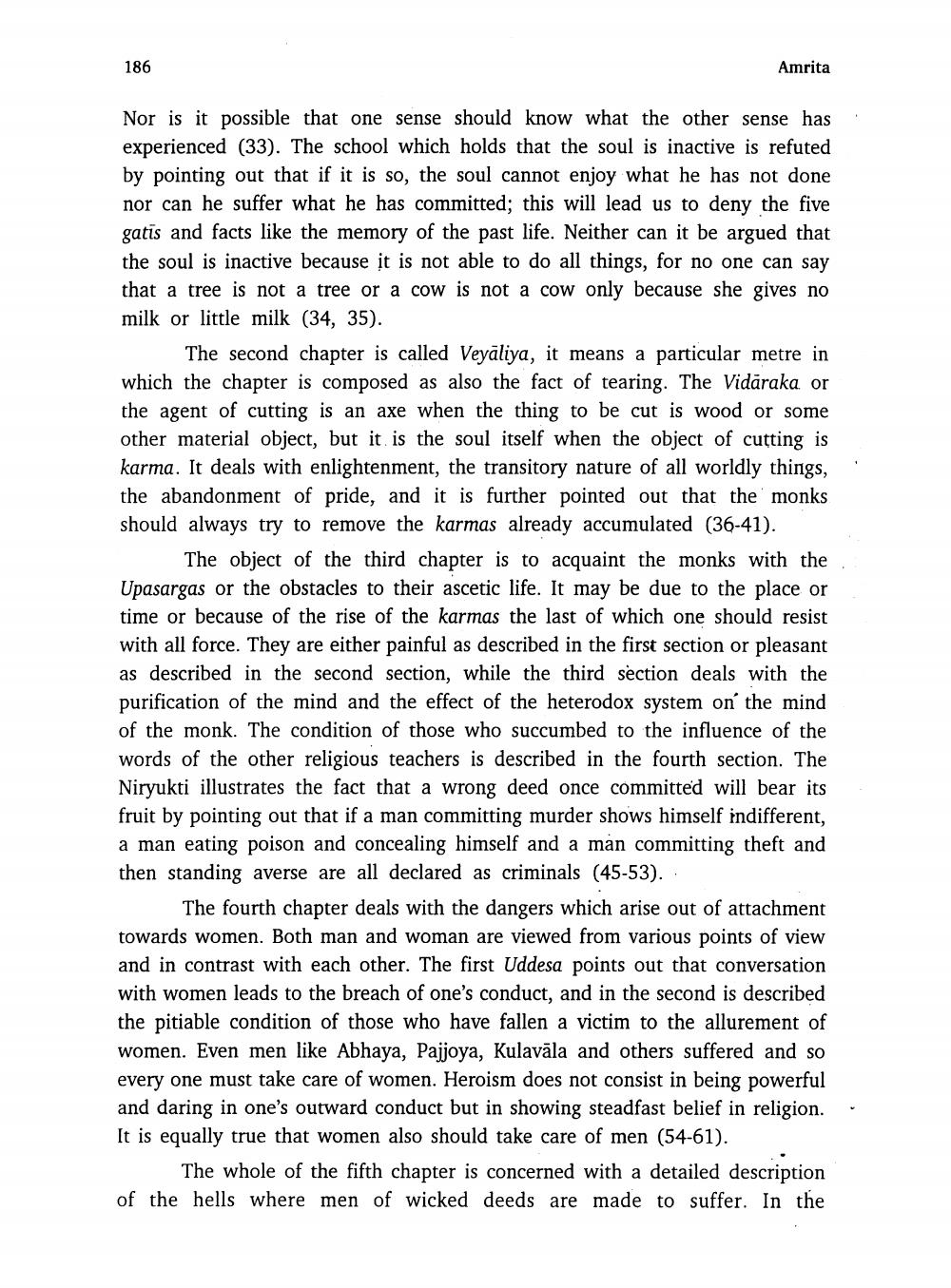________________
186
Amrita
Nor is it possible that one sense should know what the other sense has ! experienced (33). The school which holds that the soul is inactive is refuted by pointing out that if it is so, the soul cannot enjoy what he has not done nor can he suffer what he has committed; this will lead us to deny the five gatīs and facts like the memory of the past life. Neither can it be argued that the soul is inactive because it is not able to do all things, for no one can say that a tree is not a tree or a cow is not a cow only because she gives no milk or little milk (34, 35).
The second chapter is called Veyāliya, it means a particular metre in which the chapter is composed as also the fact of tearing. The Vidāraka or the agent of cutting is an axe when the thing to be cut is wood or some other material object, but it is the soul itself when the object of cutting is karma. It deals with enlightenment, the transitory nature of all worldly things, the abandonment of pride, and it is further pointed out that the monks should always try to remove the karmas already accumulated (36-41).
The object of the third chapter is to acquaint the monks with the Upasargas or the obstacles to their ascetic life. It may be due to the place or time or because of the rise of the karmas the last of which one should resist with all force. They are either painful as described in the first section or pleasant as described in the second section, while the third section deals with the purification of the mind and the effect of the heterodox system on the mind of the monk. The condition of those who succumbed to the influence of the words of the other religious teachers is described in the fourth section. The Niryukti illustrates the fact that a wrong deed once committed will bear its fruit by pointing out that if a man committing murder shows himself indifferent, a man eating poison and concealing himself and a man committing theft and then standing averse are all declared as criminals (45-53).
The fourth chapter deals with the dangers which arise out of attachment towards women. Both man and woman are viewed from various points of view and in contrast with each other. The first Uddesa points out that conversation with women leads to the breach of one's conduct, and in the second is described the pitiable condition of those who have fallen a victim to the allurement of women. Even men like Abhaya, Pajjoya, Kulavāla and others suffered and so every one must take care of women. Heroism does not consist in being powerful and daring in one's outward conduct but in showing steadfast belief in religion. It is equally true that women also should take care of men (54-61).
The whole of the fifth chapter is concerned with a detailed description of the hells where men of wicked deeds are made to suffer. In the




